General debate of the sixty-fourth session of the United Nations General Assembly
The General Debate of the sixty-fourth session of the United Nations General Assembly was the first debate of the 64th Session of the United Nations General Assembly that ran from 23–29 September 2009. Leaders from a number of member states addressed the General Assembly.
| General Debate of the sixty-fourth session of the United Nations General Assembly | ||
|---|---|---|
| ||
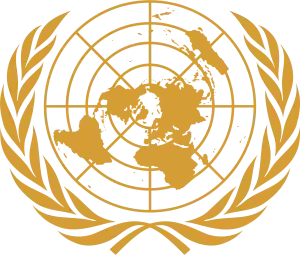 | ||
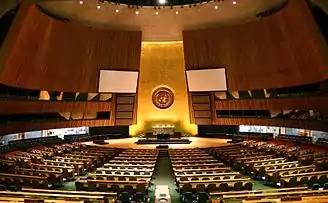 General Assembly hall at United Nations Headquarters, New York City | ||
| Host country | ||
| Venue(s) | United Nations Headquarters | |
| Cities | New York City, United States | |
| Participants | United Nations Member States | |
| President | Ali Abdussalam Treki | |
| Website | www | |
Organisation
The speaking order of the General Debate is different from the speaking order of other General Assembly debates. For the General Debate, the Secretary-General speaks first delivering their "Report of the Secretary-General on the work of the Organization, " they are then followed by: the President of the General Assembly who opens the General Debate, the delegate from Brazil and the Delegate from the United States of America. After this, the order is first given to Member States, then Observer States and supranational bodies. For all other Member States, the speaking order is based on their level of representation at the General Debate, order preference and other criteria such as geographic balance.[1][2]
According to the rules in place for the General Debate, statements should be made in one of the United Nations' official languages of Arabic, Chinese, English, French, Russian or Spanish, and are translated by United Nations translators. Additionally, speakers are usually limited to a 15-minute time limit in order to comply with the schedule set up by the General Committee. Member States are also advised to provide 350 paper copies of their statements in order for them to be distributed to other Member States, as well as to translation services.[1]
The theme for the 64th Session was chosen by President Ali Abdussalam Treki as: "Effective responses to global crises: strengthening multilateralism and dialogue among civilizations for international peace, security and development."[3]
Speaking schedule
23 September
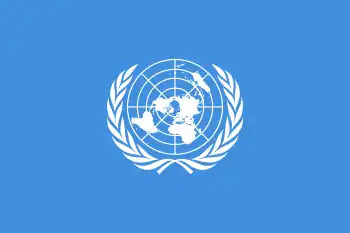 United Nations – Secretary-General Ban Ki-moon (Report of the Secretary-General on the work of the Organization)
United Nations – Secretary-General Ban Ki-moon (Report of the Secretary-General on the work of the Organization) United Nations – President of the 64th session of the General Assembly Ali Abdussalam Treki (Opening)
United Nations – President of the 64th session of the General Assembly Ali Abdussalam Treki (Opening) Brazil – President Luiz Inácio Lula da Silva
Brazil – President Luiz Inácio Lula da Silva United States – President Barack Obama
United States – President Barack Obama.svg.png.webp) Libya – Leader of the Revolution Colonel Muammar Al-Qadhafi
Libya – Leader of the Revolution Colonel Muammar Al-Qadhafi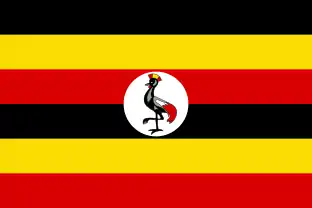 Uganda – President Yoweri Kaguta Museveni
Uganda – President Yoweri Kaguta Museveni Qatar – Amir Hamad bin Khalifa Al-Thani
Qatar – Amir Hamad bin Khalifa Al-Thani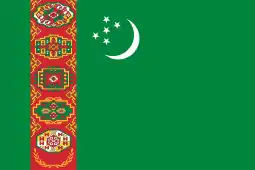 Turkmenistan – President Gurbanguly Berdimuhamedov
Turkmenistan – President Gurbanguly Berdimuhamedov Chile – President Michelle Bachelet Jeria
Chile – President Michelle Bachelet Jeria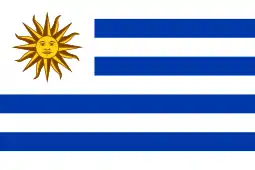 Uruguay – President Tabaré Vázquez
Uruguay – President Tabaré Vázquez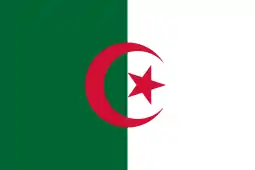 Algeria – President Abdelaziz Bouteflika
Algeria – President Abdelaziz Bouteflika Republic of Korea – President Lee Myung-bak
Republic of Korea – President Lee Myung-bak France – President Nicolas Sarkozy
France – President Nicolas Sarkozy Sweden – Prime Minister Fredrik Reinfeldt
Sweden – Prime Minister Fredrik Reinfeldt Italy – President of the Council of Ministers Silvio Berlusconi
Italy – President of the Council of Ministers Silvio Berlusconi UK – Prime Minister Gordon Brown
UK – Prime Minister Gordon Brown
 Argentina – President Cristina Fernández de Kirchner
Argentina – President Cristina Fernández de Kirchner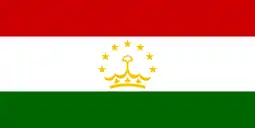 Tajikistan – President Emomali Rahmon
Tajikistan – President Emomali Rahmon China – President Hu Jintao
China – President Hu Jintao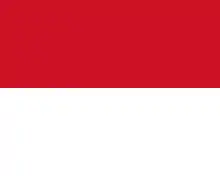 Monaco – Prince Albert II
Monaco – Prince Albert II Colombia – President Álvaro Uribe Vélez
Colombia – President Álvaro Uribe Vélez Russian Federation – President Dmitry Medvedev
Russian Federation – President Dmitry Medvedev South Africa – President Jacob Zuma
South Africa – President Jacob Zuma Czech Republic – President Václav Klaus
Czech Republic – President Václav Klaus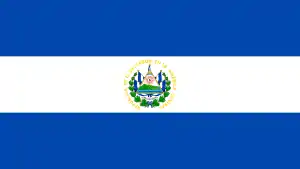 El Salvador – President Carlos Mauricio Funes Cartagena
El Salvador – President Carlos Mauricio Funes Cartagena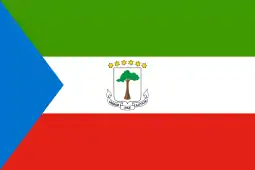 Equatorial Guinea – President Teodoro Obiang Nguema Mbasogo
Equatorial Guinea – President Teodoro Obiang Nguema Mbasogo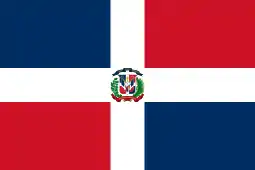 Dominican Republic – President Leonel Fernández Reyna
Dominican Republic – President Leonel Fernández Reyna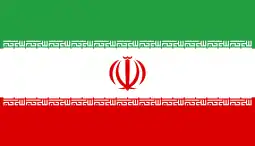 Iran (Islamic Republic of) – President Mahmoud Ahmadinejad
Iran (Islamic Republic of) – President Mahmoud Ahmadinejad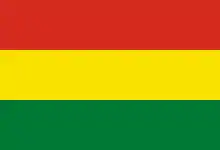 Bolivia (Plurinational State of) – President Evo Morales Ayma
Bolivia (Plurinational State of) – President Evo Morales Ayma Ukraine – President Victor Yushchenko
Ukraine – President Victor Yushchenko Poland – President Lech Kaczyński
Poland – President Lech Kaczyński.svg.png.webp) Australia – Prime Minister Kevin Rudd
Australia – Prime Minister Kevin Rudd
24 September
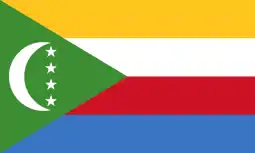 Comoros – President Ahmed Abdallah Mohamed Sambi
Comoros – President Ahmed Abdallah Mohamed Sambi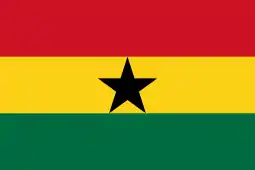 Ghana – President John Evans Atta Mills
Ghana – President John Evans Atta Mills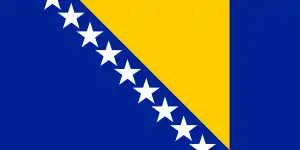 Bosnia and Herzegovina – Chairman of the Presidency Željko Komšić
Bosnia and Herzegovina – Chairman of the Presidency Željko Komšić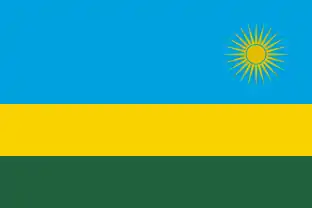 Rwanda – President Paul Kagame
Rwanda – President Paul Kagame Lithuania – President Dalia Grybauskaite
Lithuania – President Dalia Grybauskaite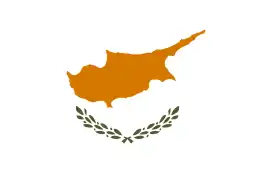 Cyprus – President Demetris Christofias
Cyprus – President Demetris Christofias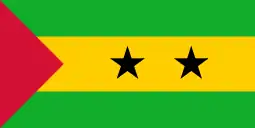 Sao Tome and Principe – President Fradique Bandeira melo de Menezes
Sao Tome and Principe – President Fradique Bandeira melo de Menezes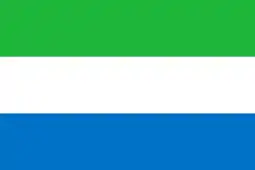 Sierra Leone – President Ernest Bai Koroma
Sierra Leone – President Ernest Bai Koroma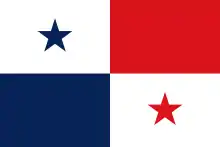 Panama – President Ricardo Martinelli Berrocal
Panama – President Ricardo Martinelli Berrocal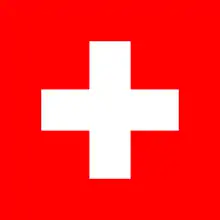 Switzerland – President Hans-Rudolf Merz
Switzerland – President Hans-Rudolf Merz Spain – President José Luis Rodríguez Zapatero
Spain – President José Luis Rodríguez Zapatero Japan – Prime Minister Yukio Hatoyama
Japan – Prime Minister Yukio Hatoyama Turkey – Prime Minister Recep Tayyip Erdoğan
Turkey – Prime Minister Recep Tayyip Erdoğan Israel – Prime Minister Benjamin Netanyahu
Israel – Prime Minister Benjamin Netanyahu
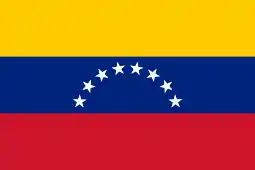 Venezuela (Bolivarian Republic of) – President Hugo Rafael Chávez Frías
Venezuela (Bolivarian Republic of) – President Hugo Rafael Chávez Frías Slovenia – President Danilo Türk
Slovenia – President Danilo Türk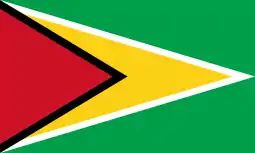 Guyana – President Bharrat Jagdeo
Guyana – President Bharrat Jagdeo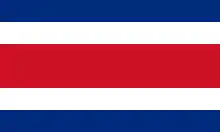 Costa Rica – President Óscar Arias Sánchez
Costa Rica – President Óscar Arias Sánchez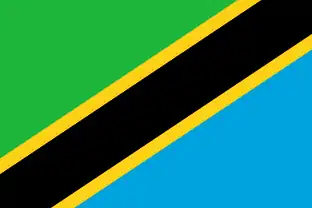 United Republic of Tanzania – President Jakaya Mrisho Kikwete
United Republic of Tanzania – President Jakaya Mrisho Kikwete Latvia – President Valdis Zatlers
Latvia – President Valdis Zatlers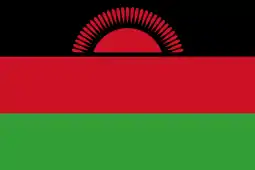 Malawi – President Bingu Wa Mutharika
Malawi – President Bingu Wa Mutharika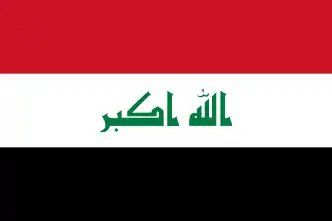 Iraq – President Jalal Talabani
Iraq – President Jalal Talabani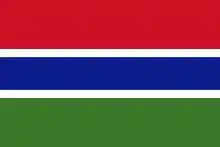 Gambia (Republic of The) – President Al Hadji Yahya Jammeh
Gambia (Republic of The) – President Al Hadji Yahya Jammeh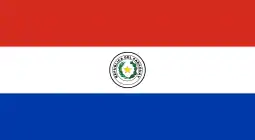 Paraguay – President Fernando Lugo Méndez
Paraguay – President Fernando Lugo Méndez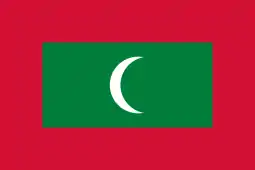 Maldives – President Mohamed Nasheed
Maldives – President Mohamed Nasheed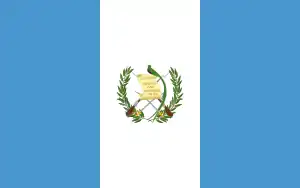 Guatemala – President Álvaro Colom Caballeros
Guatemala – President Álvaro Colom Caballeros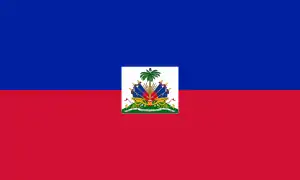 Haiti – President René Préval
Haiti – President René Préval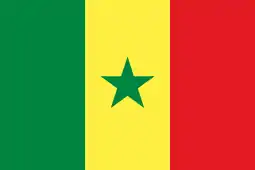 Senegal – President Abdoulaye Wade
Senegal – President Abdoulaye Wade Finland – President Tarja Halonen
Finland – President Tarja Halonen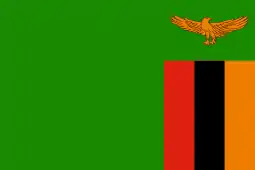 Zambia – President Rupiah Bwezani Banda
Zambia – President Rupiah Bwezani Banda Croatia – President Stjepan Mesić
Croatia – President Stjepan Mesić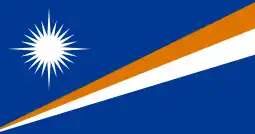 Marshall Islands – President Litokwa Tomeing
Marshall Islands – President Litokwa Tomeing Malta – Prime Minister Lawrence Gonzi
Malta – Prime Minister Lawrence Gonzi Georgia – President Mikheil Saakashvili
Georgia – President Mikheil Saakashvili
25 September
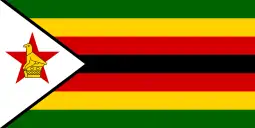 Zimbabwe – President Robert Mugabe
Zimbabwe – President Robert Mugabe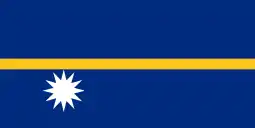 Nauru – President Marcus Stephen
Nauru – President Marcus Stephen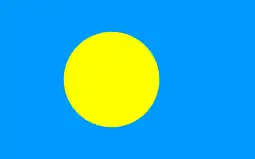 Palau – President Johnson Toribiong
Palau – President Johnson Toribiong Estonia – President Toomas Hendrik Ilves
Estonia – President Toomas Hendrik Ilves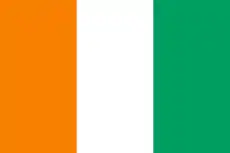 Côte d’Ivoire – President Laurent Gbagbo
Côte d’Ivoire – President Laurent Gbagbo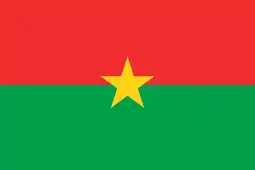 Burkina Faso – President Blaise Compaoré
Burkina Faso – President Blaise Compaoré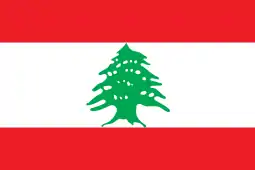 Lebanon – President Michel Sleiman
Lebanon – President Michel Sleiman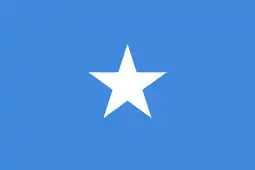 Somalia – President Sharif Sheikh Ahmed
Somalia – President Sharif Sheikh Ahmed Macedonia – President Gjorge Ivanov
Macedonia – President Gjorge Ivanov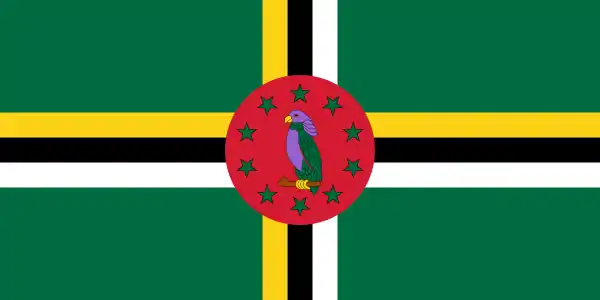 Dominica – President Nicholas Joseph Orville Liverpool
Dominica – President Nicholas Joseph Orville Liverpool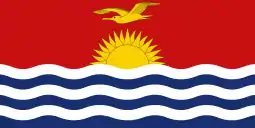 Kiribati – President Anote Tong
Kiribati – President Anote Tong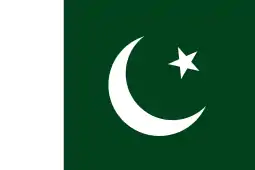 Pakistan – President Asif Ali Zardari
Pakistan – President Asif Ali Zardari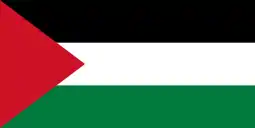 Palestine (State of) – President Mahmoud Abbas
Palestine (State of) – President Mahmoud Abbas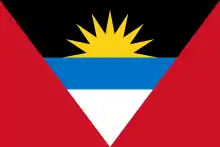 Antigua and Barbuda – Prime Minister Winston Baldwin Spencer
Antigua and Barbuda – Prime Minister Winston Baldwin Spencer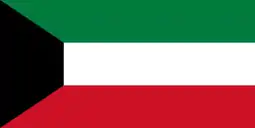 Kuwait – Prime Minister Nasser Al-Mohammad Al-Ahmad Al Jaber Al-Sab
Kuwait – Prime Minister Nasser Al-Mohammad Al-Ahmad Al Jaber Al-Sab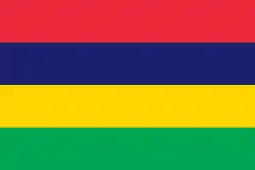 Mauritius – Prime Minister Navinchandra Ramgoolam
Mauritius – Prime Minister Navinchandra Ramgoolam
 Serbia – President Boris Tadić
Serbia – President Boris Tadić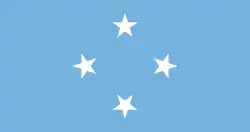 Micronesia (Federated States of) – President Emanuel Mori
Micronesia (Federated States of) – President Emanuel Mori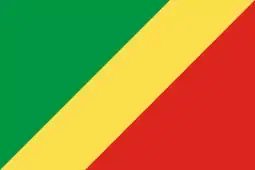 Congo – President Denis Sassou-Nguesso
Congo – President Denis Sassou-Nguesso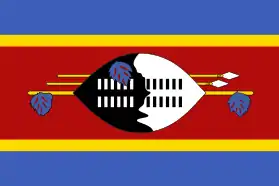 Swaziland – Head of State Mswati III
Swaziland – Head of State Mswati III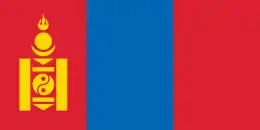 Mongolia – President Elbegdorj Tsakhia
Mongolia – President Elbegdorj Tsakhia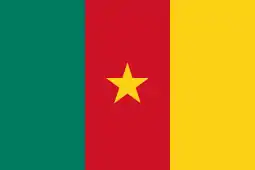 Cameroon – President Paul Biya
Cameroon – President Paul Biya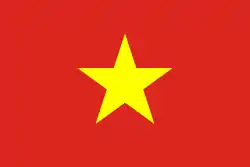 Viet Nam – President Nguyen Minh Triet
Viet Nam – President Nguyen Minh Triet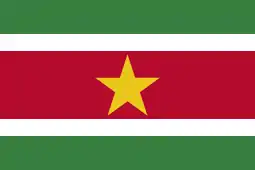 Suriname – Vice-President Ramdien Sardjoe
Suriname – Vice-President Ramdien Sardjoe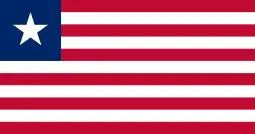 Liberia – Vice-President Joseph Boakai
Liberia – Vice-President Joseph Boakai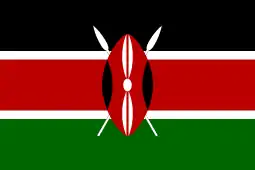 Kenya – Prime Minister Raila Amollo Odinga
Kenya – Prime Minister Raila Amollo Odinga New Zealand – Prime Minister John Key
New Zealand – Prime Minister John Key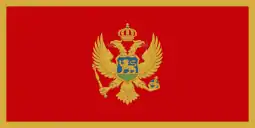 Montenegro – Prime Minister Milo Đukanović
Montenegro – Prime Minister Milo Đukanović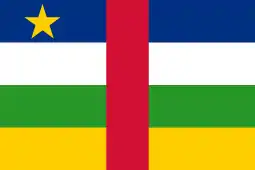 Central African Republic – Prime Minister Faustin Archange Touadera
Central African Republic – Prime Minister Faustin Archange Touadera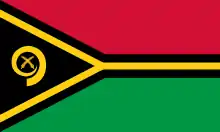 Vanuatu – Prime Minister Edward Nipake Natapei
Vanuatu – Prime Minister Edward Nipake Natapei Luxembourg – Deputy Prime Minister Jean Asselborn
Luxembourg – Deputy Prime Minister Jean Asselborn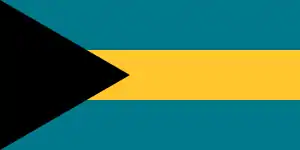 Bahamas – Deputy Prime Minister Theodore Brent Symonette
Bahamas – Deputy Prime Minister Theodore Brent Symonette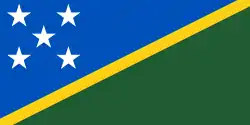 Solomon Islands – Deputy Prime Minister Fredrick Fono
Solomon Islands – Deputy Prime Minister Fredrick Fono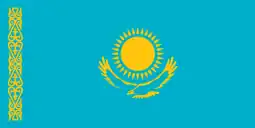 Kazakhstan – Secretary of State Kanat Saudabayev
Kazakhstan – Secretary of State Kanat Saudabayev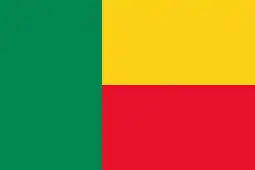 Benin – Minister for Foreign Affairs Jean-Marie Ehouzou
Benin – Minister for Foreign Affairs Jean-Marie Ehouzou Philippines – Secretary for Foreign Affairs Alberto Romulo
Philippines – Secretary for Foreign Affairs Alberto Romulo Azerbaijan – Minister for Foreign Affairs Elmar Maharram oglu Mammadyarov
Azerbaijan – Minister for Foreign Affairs Elmar Maharram oglu Mammadyarov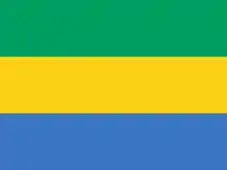 Gabon – Minister for Foreign Affairs Paul Toungui
Gabon – Minister for Foreign Affairs Paul Toungui
26 September
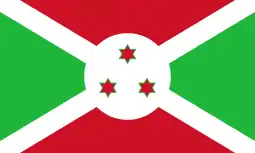 Burundi – Vice-President Gabriel Ntisezerana
Burundi – Vice-President Gabriel Ntisezerana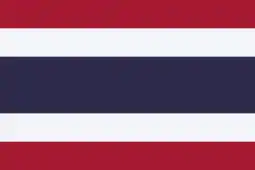 Thailand – Prime Minister Abhisit Vejjajiva
Thailand – Prime Minister Abhisit Vejjajiva Netherlands – Prime Minister Jan Peter Balkenende
Netherlands – Prime Minister Jan Peter Balkenende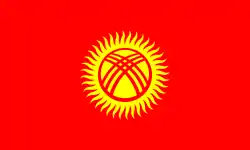 Kyrgyzstan – Prime Minister Igor Chudinov
Kyrgyzstan – Prime Minister Igor Chudinov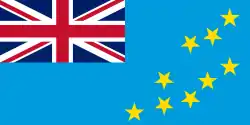 Tuvalu – Prime Minister Apisai Ielemia
Tuvalu – Prime Minister Apisai Ielemia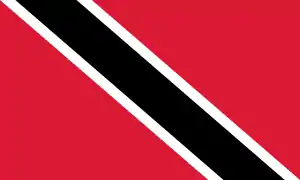 Trinidad and Tobago – Prime Minister Patrick Manning
Trinidad and Tobago – Prime Minister Patrick Manning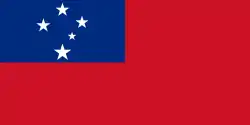 Samoa – Prime Minister Tuila'epa Lupesoliai Sailele Malielegaoi
Samoa – Prime Minister Tuila'epa Lupesoliai Sailele Malielegaoi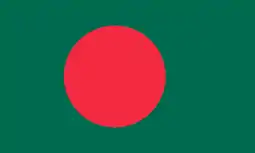 Bangladesh – Prime Minister Sheikh Hasina
Bangladesh – Prime Minister Sheikh Hasina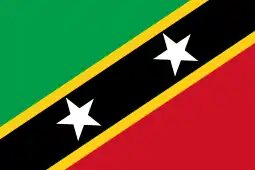 Saint Kitts and Nevis – Prime Minister Denzil Douglas
Saint Kitts and Nevis – Prime Minister Denzil Douglas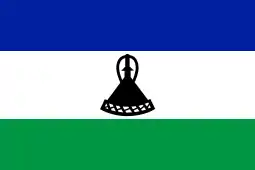 Lesotho – Prime Minister Pakalitha Bethuel Mosisili
Lesotho – Prime Minister Pakalitha Bethuel Mosisili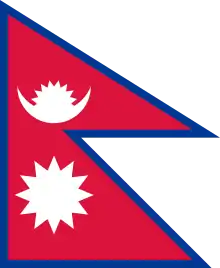 Nepal – Prime Minister Madhav Kumar Nepal
Nepal – Prime Minister Madhav Kumar Nepal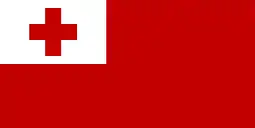 Tonga – Prime Minister Feleti Vaka'uta Sevele
Tonga – Prime Minister Feleti Vaka'uta Sevele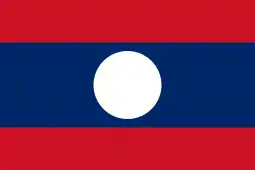 Lao People’s Democratic Republic – Deputy Prime Minister Thongloun Sisoulith
Lao People’s Democratic Republic – Deputy Prime Minister Thongloun Sisoulith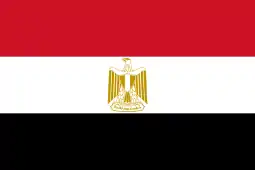 Egypt – Minister for Foreign Affairs Ahmed Aboul Gheit
Egypt – Minister for Foreign Affairs Ahmed Aboul Gheit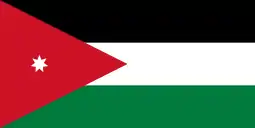 Jordan – Minister for Foreign Affairs Nasser Judeh
Jordan – Minister for Foreign Affairs Nasser Judeh Slovakia – Minister for Foreign Affairs Miroslav Lajčák
Slovakia – Minister for Foreign Affairs Miroslav Lajčák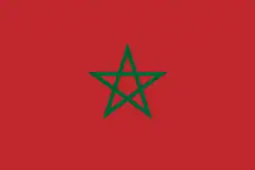 Morocco – Minister for Foreign Affairs Taïb Fassi Fihri
Morocco – Minister for Foreign Affairs Taïb Fassi Fihri
 Albania – Prime Minister Sali Berisha
Albania – Prime Minister Sali Berisha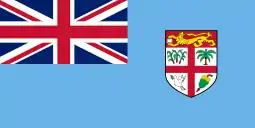 Fiji – Prime Minister Josaia Bainimarama
Fiji – Prime Minister Josaia Bainimarama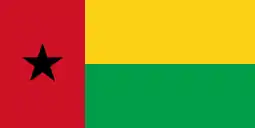 Guinea-Bissau – Prime Minister Carlos Gomes Junior
Guinea-Bissau – Prime Minister Carlos Gomes Junior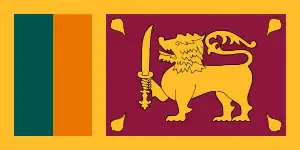 Sri Lanka – Prime Minister Ratnasiri Wickramanayake
Sri Lanka – Prime Minister Ratnasiri Wickramanayake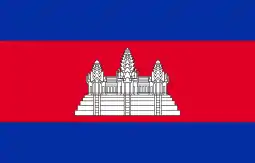 Cambodia – Deputy Prime Minister Hor Namhong
Cambodia – Deputy Prime Minister Hor Namhong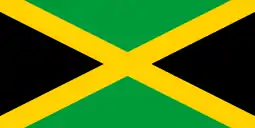 Jamaica – Deputy Prime Minister Kenneth Baugh
Jamaica – Deputy Prime Minister Kenneth Baugh Austria – Minister for Foreign Affairs Michael Spindelegger
Austria – Minister for Foreign Affairs Michael Spindelegger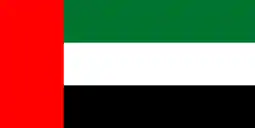 United Arab Emirates – Minister for Foreign Affairs Abdullah Bin Zayed Al Nahyan
United Arab Emirates – Minister for Foreign Affairs Abdullah Bin Zayed Al Nahyan.svg.png.webp) Belgium – Minister for Foreign Affairs Yves Leterme
Belgium – Minister for Foreign Affairs Yves Leterme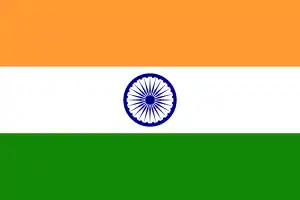 India – Minister of External Affairs S. M. Krishna
India – Minister of External Affairs S. M. Krishna Bulgaria – Minister for Foreign Affairs Rumiana Jeleva
Bulgaria – Minister for Foreign Affairs Rumiana Jeleva Iceland – Minister for Foreign Affairs Össur Skarphéðinsson
Iceland – Minister for Foreign Affairs Össur Skarphéðinsson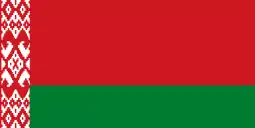 Belarus – Minister for Foreign Affairs Sergei Martynov
Belarus – Minister for Foreign Affairs Sergei Martynov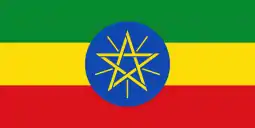 Ethiopia – Minister for Foreign Affairs Seyoum Mesfin
Ethiopia – Minister for Foreign Affairs Seyoum Mesfin Romania – Minister for Foreign Affairs Cristian Diaconescu
Romania – Minister for Foreign Affairs Cristian Diaconescu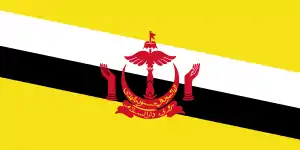 Brunei Darussalam – Minister for Foreign Affairs Mohamed Bolkiah
Brunei Darussalam – Minister for Foreign Affairs Mohamed Bolkiah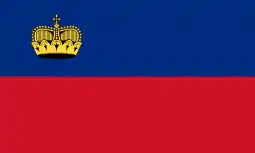 Liechtenstein – Minister for Foreign Affairs Aurelia Frick
Liechtenstein – Minister for Foreign Affairs Aurelia Frick.svg.png.webp) Canada – Minister for Foreign Affairs Lawrence Cannon
Canada – Minister for Foreign Affairs Lawrence Cannon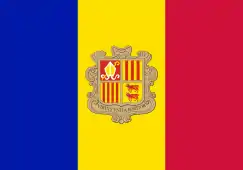 Andorra – Minister for Foreign Affairs Xavier Espot Miró
Andorra – Minister for Foreign Affairs Xavier Espot Miró
Rights of Reply
Islamic Republic of Iran
The delegation of Iran used its right of reply to place on record their position on two issues. First, it responded to claims by various delegations, in particular the delegations of the Netherlands, Slovakia, Austria and Canada, in regards to its nuclear program. Iran stated that its nuclear activities have always been for peaceful purposes, and that they have always observed their legal obligations under the Treaty on the Non-Proliferation of Nuclear Weapons. It further stated that more attention should be paid to "un-safeguarded and secretive nuclear weapons installations of the Zionist regime."[12]
Secondly, it responded to the United Arab Emirates regarding its territorial integrity and the sovereignty of three islands in the Persian Gulf, namely Bu Musa, Greater Tunb and Lesser Tunb. These islands are claimed by the United Arab Emirates, and in their General Assembly speech called for their return. Iran, however, considers these islands to be an integral part of Iranian territory. It stated that all actions taken on these islands have been in exercise of its sovereign rights.[12][13]
Serbia
The delegation of Serbia used its right of reply to respond to statements made by the Prime Minister of the Albania, Sali Berisha. In his speech before the Assembly, the Prime Minister added his support to the independence of Kosovo from Serbia. He also urged Member States to recognize Kosovo and uphold General Assembly Resolution 49/204, which called for an end to human rights violations against ethnic Albanians in Kosovo, as well as the establishment of democratic institutions in Kosovo.[14][15]
Serbia responded by denouncing Mr. Berisha's attempts to interfere in the internal affairs of other United Nations Member States. Serbia also stated that his remarks were deplorable, especially when the legality of Kosovo's secession was being considered by the International Court of Justice. Finally, Serbia stated that, contrary to Mr. Berisha's staements, inter-ethnic tensions in Kosovo have not been reduced, but rather "frozen in uneasy expectation."[12]
United Arab Emirates
The delegation of the United Arab Emirates used its right of reply to respond to statements made in the right of reply of the Islamic Republic of Iran. HH. Abdullah Bin Zayed Al Nahyan re-emphasized that the United Arab Emirates considers Bu Musa, Greater Tunb and Lesser Tunb as integral parts of Emirati territory and called upon Iran to engage in unconditional, serious and direct bilateral negotiations in order reach a final outcome of the dispute. He also suggested that, if no resolution could be found, the case be sent to the International Court of Justice for a legal opinion.[12]
Albania
The delegation of Albania used its right of reply to respond to statements made in the right of reply of Serbia. Albania stated that the Republic of Kosovo was an undeniable reality, and that it would one day finally achieve its independence. While agreeing that the issue was still divisive, the delegation pointed out that the number of countries recognizing Kosovo has only increased. Finally, the delegation stated that it reserves the right to advocate for the independence of Kosovo as a neighboring state that could be possibly affected by any conflicts over the region.[12]
28 September
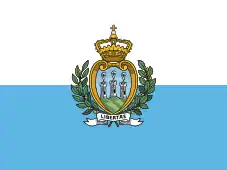 San Marino – Minister for Foreign Affairs Antonella Mularoni
San Marino – Minister for Foreign Affairs Antonella Mularoni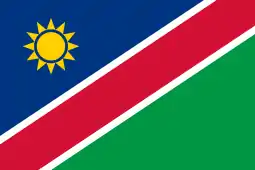 Namibia – Minister for Foreign Affairs Marco Hausiku
Namibia – Minister for Foreign Affairs Marco Hausiku Peru – Minister for Foreign Affairs José Antonio García Belaúnde
Peru – Minister for Foreign Affairs José Antonio García Belaúnde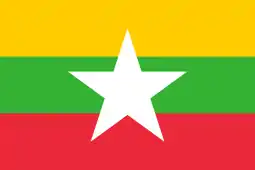 Myanmar – Prime Minister Thein Sein
Myanmar – Prime Minister Thein Sein Mexico – Secretary for Foreign Affairs Patricia Espinosa Cantellano
Mexico – Secretary for Foreign Affairs Patricia Espinosa Cantellano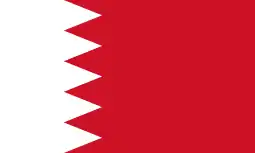 Bahrain – Minister for Foreign Affairs Khalid Bin Ahmed Bin Mohamed Alkhalifa
Bahrain – Minister for Foreign Affairs Khalid Bin Ahmed Bin Mohamed Alkhalifa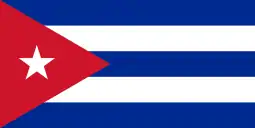 Cuba – Minister for Foreign Affairs Bruno Rodriguez Parrilla
Cuba – Minister for Foreign Affairs Bruno Rodriguez Parrilla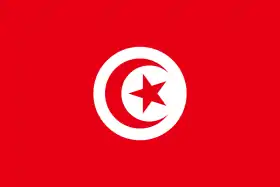 Tunisia – Minister for Foreign Affairs Abdelwaheb Abdallah
Tunisia – Minister for Foreign Affairs Abdelwaheb Abdallah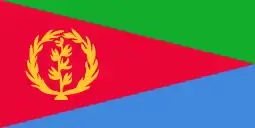 Eritrea – Minister for Foreign Affairs Osman Mohammed Saleh
Eritrea – Minister for Foreign Affairs Osman Mohammed Saleh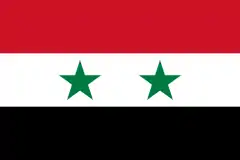 Syrian Arab Republic – Minister for Foreign Affairs Walid Al-Moualem
Syrian Arab Republic – Minister for Foreign Affairs Walid Al-Moualem 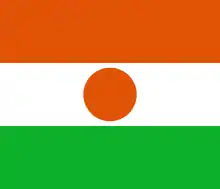 Niger – Minister for Foreign Affairs Aichatou Mindaoudou
Niger – Minister for Foreign Affairs Aichatou Mindaoudou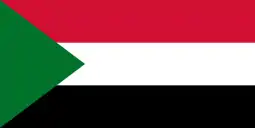 Sudan – Acting Foreign Minister Ghazi Salahuddin Atabani
Sudan – Acting Foreign Minister Ghazi Salahuddin Atabani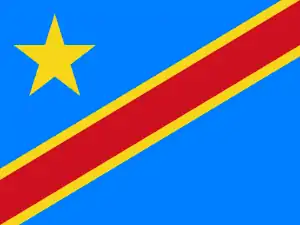 Democratic Republic of the Congo – Minister for Foreign Affairs Alexis Thambwe Mwamba
Democratic Republic of the Congo – Minister for Foreign Affairs Alexis Thambwe Mwamba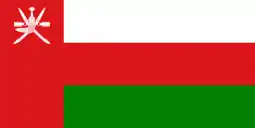 Oman – Minister for Foreign Affairs Yousef Bin Al-Alawi Bin Abdullah
Oman – Minister for Foreign Affairs Yousef Bin Al-Alawi Bin Abdullah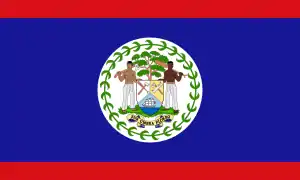 Belize – Attorney General Wilfred Elrington
Belize – Attorney General Wilfred Elrington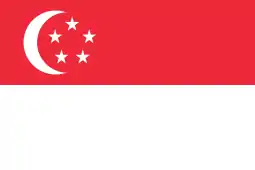 Singapore – Minister for Foreign Affairs George Yeo
Singapore – Minister for Foreign Affairs George Yeo Hungary – Minister for Foreign Affairs Péter Balázs
Hungary – Minister for Foreign Affairs Péter Balázs Bhutan – Minister for Foreign Affairs Lyonpo Ugyen Tshering
Bhutan – Minister for Foreign Affairs Lyonpo Ugyen Tshering
.svg.png.webp) Mauritania – Minister for Foreign Affairs Naha Mint Mouknass
Mauritania – Minister for Foreign Affairs Naha Mint Mouknass Ireland – Minister of State Peter Power
Ireland – Minister of State Peter Power 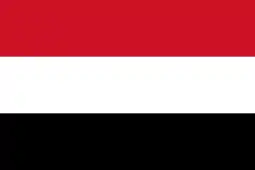 Yemen – Minister for Foreign Affairs Abubakr Al-Qirbi
Yemen – Minister for Foreign Affairs Abubakr Al-Qirbi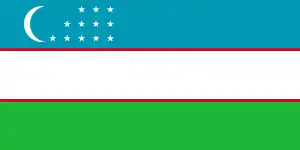 Uzbekistan – Minister for Foreign Affairs Vladimir Norov
Uzbekistan – Minister for Foreign Affairs Vladimir Norov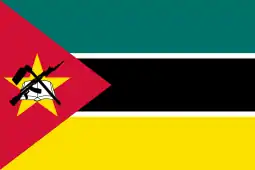 Mozambique – Minister for Foreign Affairs Oldemiro Marques Baloi
Mozambique – Minister for Foreign Affairs Oldemiro Marques Baloi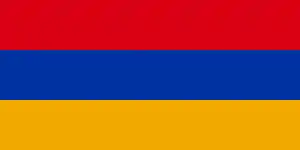 Armenia – Minister for Foreign Affairs Edward Nalbandian
Armenia – Minister for Foreign Affairs Edward Nalbandian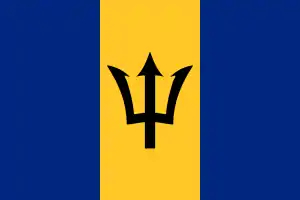 Barbados – Minister for Foreign Affairs Maxine Pamela Ometa McClean
Barbados – Minister for Foreign Affairs Maxine Pamela Ometa McClean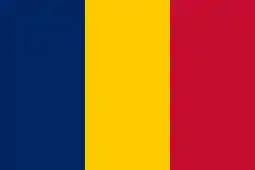 Chad – Minister for Foreign Affairs Moussa Faki Mahamat
Chad – Minister for Foreign Affairs Moussa Faki Mahamat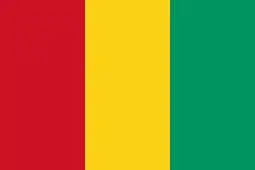 Guinea – Minister for Foreign Affairs Alexandre Cécé Loua
Guinea – Minister for Foreign Affairs Alexandre Cécé Loua Saint Lucia – Minister of External Affairs Rufus George Bousquet
Saint Lucia – Minister of External Affairs Rufus George Bousquet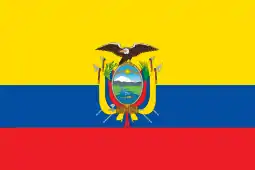 Ecuador – Minister for Foreign Affairs Fander Falconi
Ecuador – Minister for Foreign Affairs Fander Falconi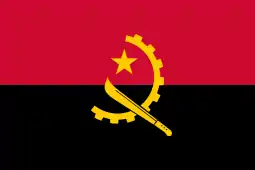 Angola – Minister of External Affairs Assunçaõ Afonso dos Anjos
Angola – Minister of External Affairs Assunçaõ Afonso dos Anjos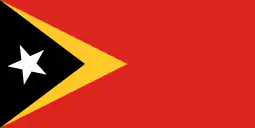 Timor-Leste – Minister for Foreign Affairs Zacarias Albano Da Costa
Timor-Leste – Minister for Foreign Affairs Zacarias Albano Da Costa Malaysia – Minister for Foreign Affairs Anifah Aman
Malaysia – Minister for Foreign Affairs Anifah Aman.svg.png.webp) Afghanistan – Minister for Foreign Affairs Rangin Dâdfar Spantâ
Afghanistan – Minister for Foreign Affairs Rangin Dâdfar Spantâ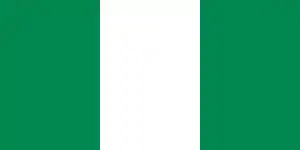 Nigeria – Minister for Foreign Affairs Ojo Maduekwe
Nigeria – Minister for Foreign Affairs Ojo Maduekwe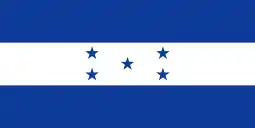 Honduras – Minister for Foreign Affairs Patricia Isabel Rodas Baca
Honduras – Minister for Foreign Affairs Patricia Isabel Rodas Baca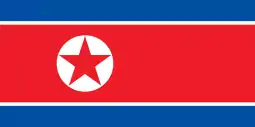 Democratic People’s Republic of Korea – Vice Minister for Foreign Affairs Pak Kil Yon
Democratic People’s Republic of Korea – Vice Minister for Foreign Affairs Pak Kil Yon Portugal – Secretary for Foreign Affairs João Gomes Cravinho
Portugal – Secretary for Foreign Affairs João Gomes Cravinho Germany – Chairman Thomas Matussek
Germany – Chairman Thomas Matussek
29 September
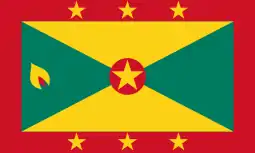 Grenada – Minister for Foreign Affairs and Foreign Trade Peter David
Grenada – Minister for Foreign Affairs and Foreign Trade Peter David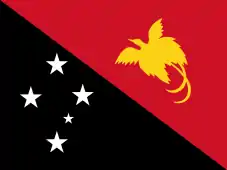 Papua New Guinea – Minister of External Affairs Samuel Abal
Papua New Guinea – Minister of External Affairs Samuel Abal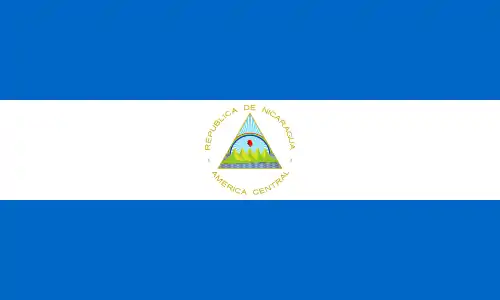 Nicaragua – Minister for Foreign Affairs Samuel Santos López
Nicaragua – Minister for Foreign Affairs Samuel Santos López Norway – Minister for Foreign Affairs Jonas Gahr Støre
Norway – Minister for Foreign Affairs Jonas Gahr Støre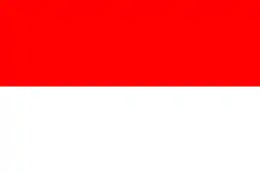 Indonesia – Minister for Foreign Affairs Hassan Wirajuda
Indonesia – Minister for Foreign Affairs Hassan Wirajuda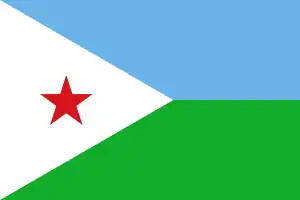 Djibouti – Permanent Representative Roble Olhaye
Djibouti – Permanent Representative Roble Olhaye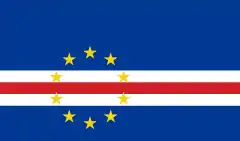 Cabo Verde – Chair of the Delegation Antonio Pedro Monteiro Lima
Cabo Verde – Chair of the Delegation Antonio Pedro Monteiro Lima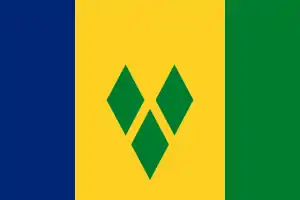 Saint Vincent and the Grenadines – Chair of the Delegation Camillo Gonsalves
Saint Vincent and the Grenadines – Chair of the Delegation Camillo Gonsalves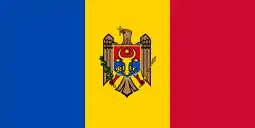 Republic of Moldova – Chair of the Delegation Alexandru Cujba
Republic of Moldova – Chair of the Delegation Alexandru Cujba Greece – Chair of the Delegation Anastassis Mitsialis
Greece – Chair of the Delegation Anastassis Mitsialis Denmark – Chair of the Delegation Carsten Staur
Denmark – Chair of the Delegation Carsten Staur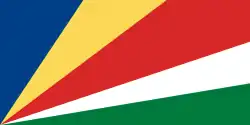 Seychelles – Chair of the Delegation Ronald Jean Jumeau
Seychelles – Chair of the Delegation Ronald Jean Jumeau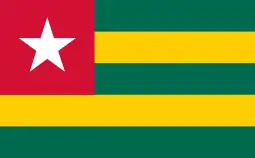 Togo – Chair of the Delegation Kodjo Menan
Togo – Chair of the Delegation Kodjo Menan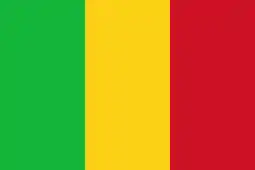 Mali – Chair of the Delegation Oumar Daou
Mali – Chair of the Delegation Oumar Daou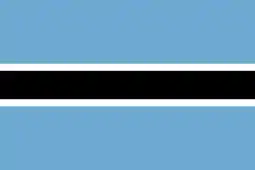 Botswana – Chair of the Delegation Charles Thembani Ntwaaggae
Botswana – Chair of the Delegation Charles Thembani Ntwaaggae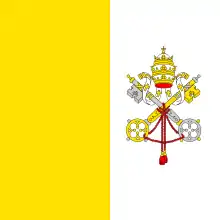 Holy See – Archbishop Celestino Migliore
Holy See – Archbishop Celestino Migliore United Nations – President of the 64th session of the General Assembly Ali Abdussalam Treki (Closing)
United Nations – President of the 64th session of the General Assembly Ali Abdussalam Treki (Closing)
References
- Aeschlimann, Johann; Regan, Mary, eds. (2017). The GA Handbook: A practical guide to the United Nations General Assembly (PDF). New York: Permanent Mission of Switzerland to the United Nations. pp. 86–88. ISBN 978-0-615-49660-3.
- Capel, Charles (22 September 2018). "How is the order of speakers at the UN General Assembly decided?". The National. The National. Retrieved 15 September 2019.
- "64th session". General Assembly of the United Nations. United Nations. n.d. Retrieved 13 September 2019.
- "General Debate 64th Session: 23 September 2009 to 29 September 2009". General Assembly of the United Nations. United Nations. n.d. Retrieved 14 September 2019.
- United Nations General Assembly Session 64 Official record PV.3. General Assembly Sixty-fourth session: 3rd plenary meeting, Wednesday, 23 September 2009, 9 a.m. New York A/64/PV.3 23 September 2009. Retrieved 15 September 2019.
- United Nations General Assembly Session 64 Official record PV.4. General Assembly Sixty-fourth session: 4th plenary meeting, Wednesday, 23 September 2009, 3 p.m. New York A/64/PV.4 23 September 2009. Retrieved 15 September 2019.
- United Nations General Assembly Session 64 Official record PV.5. General Assembly Sixty-fourth session: 5th plenary meeting, Thursday, 24 September 2009, 9 a.m. New York A/64/PV.5 24 September 2009. Retrieved 15 September 2019.
- United Nations General Assembly Session 64 Official record PV.6. General Assembly Sixty-fourth session: 6th plenary meeting, Thursday, 24 September 2009, 3 p.m. New York A/64/PV.6 24 September 2009. Retrieved 15 September 2019.
- United Nations General Assembly Session 64 Official record PV.7. General Assembly Sixty-fourth session: 7th plenary meeting, Friday, 25 September 2009, 9 a.m. New York A/64/PV.7 25 September 2009. Retrieved 15 September 2019.
- United Nations General Assembly Session 64 Official record PV.8. General Assembly Sixty-fourth session: 8th plenary meeting, Friday, 25 September 2009, 3p.m. New York A/64/PV.8 25 September 2009. Retrieved 15 September 2019.
- United Nations General Assembly Session 64 Official record PV.9. General Assembly Sixty-fourth session: 9th plenary meeting, Saturday, 26 September 2009, 9 a.m. New York A/64/PV.9 26 September 2009. Retrieved 15 September 2019.
- United Nations General Assembly Session 64 Official record PV.10. General Assembly Sixty-fourth session: 10th plenary meeting, Saturday, 26 September 2009, 3 p.m. New York A/64/PV.10 26 September 2009. Retrieved 15 September 2019.
- Bin Zayed Al Nahyan, Abdullah (26 September 2009). Statement by His Highness Sheikh Abdullah Bin Zayed Al Nahyan, Minister of Foreign Affairs of the United Arab Emirates, Head of Delegation, before the general debate of the 64 session of the United Nations General Assembly (PDF) (Speech). United Nations General Assembly (in Arabic). New York: United Nations. Retrieved 15 September 2019.
- Berisha, Sali (26 September 2019). Statement by H.E. Mr. Sali Berisha, Prime Minister of the Republic of Albania, 64 session of the United Nations General Assembly (PDF) (Speech). United Nations General Assembly. New York: United Nations. Retrieved 15 September 2019.
- United Nations General Assembly Session 49 Resolution 204. Situation of human rights in Kosovo A/RES/49/204 13 March 1995. Retrieved 15 September 2019.
- United Nations General Assembly Session 64 Official record PV.11. General Assembly Sixty-fourth session: 11th plenary meeting, Monday, 28 September 2009, 9 a.m. New York A/64/PV.11 28 September 2009. Retrieved 15 September 2019.
- United Nations General Assembly Session 64 Official record PV.12. General Assembly Sixty-fourth session: 12th plenary meeting, Monday, 28 September 2009, 3 p.m. New York A/64/PV.12 28 September 2009. Retrieved 15 September 2019.
- United Nations General Assembly Session 64 Official record PV.13. General Assembly Sixty-fourth session: 13th plenary meeting, Tuesday, 29 September 2009, 9 a.m. New York A/64/PV.13 29 September 2009. Retrieved 15 September 2019.